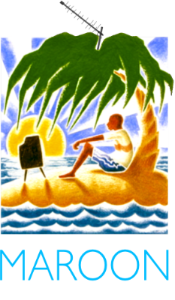The debate was part of “Diversify”, one strand of “Creative Week”, an event celebrating the UK creative economy organised by Broadcast and Screen International publisher MBI during the first week of June.
Channel 4 News presenter Krishnan Guru-Murthy told a packed audience at RADA Studios in central London that the “industry had gone backwards over the past 10 to 15 years” in promoting diversity. He added: “Huge strides were made in the 1980s and 1990s and then things stood still. A lot of the people who are senior in television, either on- or off-screen, are the same as when I was coming into the business 25 years ago.”
Guru-Murthy’s solution was the introduction of “enforceable targets with [financial] penalties”, which he characterised as “rules with teeth”, adding: “I don’t see anything else that will produce the kind of step change that we need.”
BECTU Head of Diversity Janice Turner added her union’s support for enforceable targets. She also called for “effective equality monitoring and the publishing of that data – we want the employers to have no hiding place.”
Black TV producer Paul Blake said that he had heard much “warm and fuzzy language” about diversity but had seen “no action whatsoever”. The Managing Director of Maroon Productions added his backing for quotas, which he though could be enforced by Ofcom.
Opening the session – which was chaired by C4 Director of Cultural Diversity Stuart Cosgrove – ex-RTS chief and now Chair of the Campaign for Broadcasting Equality Simon Albury ruffled a few BBC feathers with a stinging attack on the corporation’s diversity strategy.
Focusing on the BBC’s news output, the former RTS Chief Executive said: “The BBC News Action plan doesn’t want to see Black, Asian and Minority Ethnic (BAME) people with editorial power or editorial responsibility – it just wants them to see a few of them up on-screen. On-screen representation is very important – but on-screen representation that is not matched by off-screen employment is a hollow and deceptive gesture.”
Peter Salmon, the BBC’s Director, England, accepted that “getting into the BBC can be really difficult. It can be opaque and frustrating and it’s very competitive.” But he added: “I’m not sure change happens because of being berated or pushed into a corner or typified as some kind of devil brand. The BBC does some amazing things.”
Salmon revealed that 12% of the BBC’s workforce is from BAME backgrounds, close to the UK average as a whole. He conceded, however, that this overall figure concealed some troubling areas. “It is clear that there are not enough black faces at the most senior levels of all our media companies, not just the BBC. And, while we bring on many good BAME producers, they don’t develop their careers fully with us.”
Former Chair of the Equality & Human Rights Commission Trevor Phillips, who has a strong background in television as a former presenter and producer of LWT’s The London Programme, argued that “there’s only one issue: power – who calls the shots”. On the five main television boards – the BBC Trust, ITV, C4, BSkyB and Ofcom – he said that just one of the 62 members was not white, adding: “The people who run our business have to look more like the country that we are.”
A second session, “Practical steps for making your production more diverse”, chaired by Broadcast Editor Chris Curtis, followed the RTS-sponsored discussion on diversity quotas.
Creative Skillset Executive Director Kate O’Connor said the two most important issues facing her organisation were: “How do people get into the industry and then, once in, how do they get on?”
There was general agreement on the panel that O’Connor’s second challenge – how to build careers – was the bigger obstacle for BAME people. “I find people get to assistant producer level and can’t make the jump to becoming a producer/director. There are very few series producers in the business – and execs you can probably count on one hand,” said Shiver Talent Executive Michelle Matherson.
Simone Pennant, the Founder/Director of The TV Collective, which supports diverse talent, said: “One of the biggest issues is the way the BAME community is perceived. We’ve got assistant producers, producers and directors, a real wealth of talent.” Yet, she revealed that production companies tend to come to her organisation to fill lower level jobs such as runners and researchers.
“Diversify” was held at RADA Studios in Central London on 3 June. The RTS session, “To quota or not to quota”, was produced by the BBC’s Marcus Ryder; the second session, “Practical steps for making your production more diverse”, was produced by Sarah Cooper from Screen Daily.
Original Article: https://rts.org.uk/article/event-report-rtsbroadcast-diversify-panel-discussions

